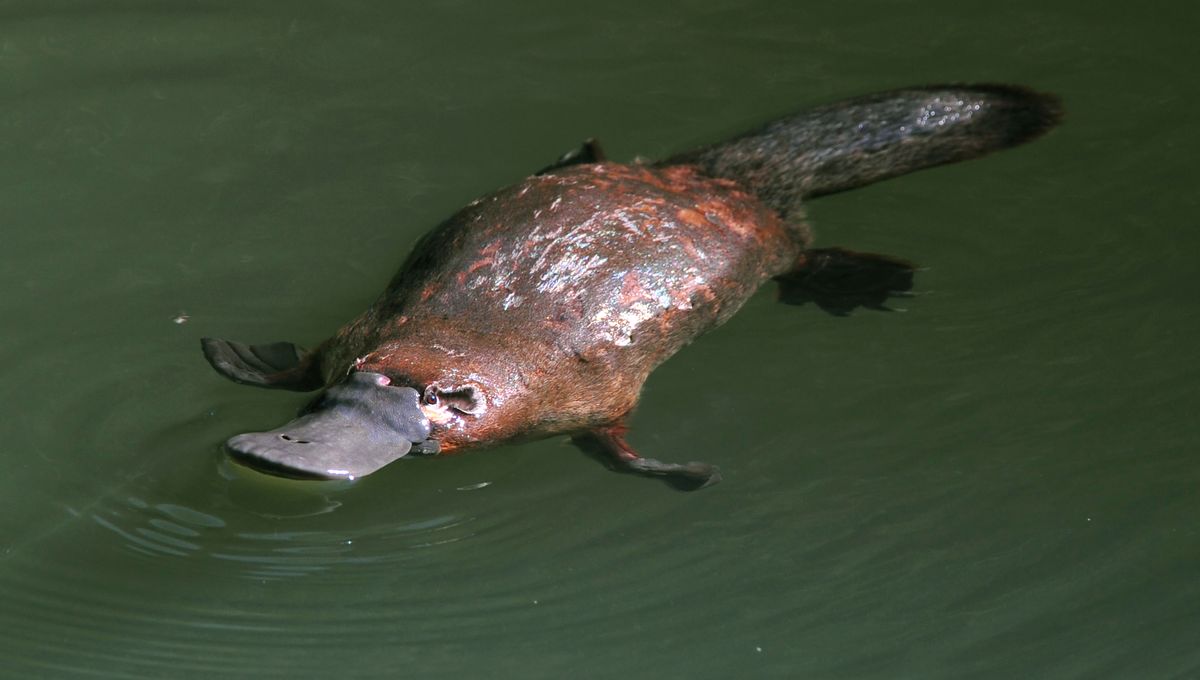
It’s honestly no surprise that the first people to see platypuses thought they were fake; they look like someone woke up one day and decided to bung together a bizarre-looking mishmash of a duck, beaver, and otter. Take a peek inside a platypus, however, and they get even stranger – they don’t have a stomach.
Stomachs are a long-standing feature in vertebrate history, thought to have evolved for the first time in the form of gastric glands around 450 million years ago. But just because something’s been about for a long time doesn’t mean it has to stay.
Many vertebrates have ditched the organ, including the platypus, but also its fellow monotremes the echidnas and an estimated 20 to 27 percent of teleosts, a group that contains the vast majority of fish species.
The platypus in particular is a great example of how the loss of such a feature usually goes hand in hand with the loss of the genes associated with it – which makes it very difficult to get it back.
A study from 2008 revealed that many of the key genes associated with stomach function had either become inactivated, or completely disappeared from the platypus genome (the entirety of an organism’s genetic information).
It marked an interesting addition to what scientists knew about vertebrate evolution. “All of these genes are highly conserved in vertebrates, reflecting a unique pattern of evolution in the platypus genome not previously seen in other mammalian genomes,” the authors wrote.
But were platypuses alone? After all, it’s not a guarantee that creatures who’ve lost a feature will also lose the genes linked to it. The cave-dwelling form of the Mexican tetra, for example, doesn’t have eyes, but it does still have the genes for developing them – they’ve just been silenced.
For the many animals who’ve lost a stomach, however, a team of scientists found that the associated genes have in fact been scrapped.
Filipe Castro and colleagues compared the genomes of 14 vertebrate species, including humans, mice, and zebrafish, to test their hypothesis that getting rid of the stomach through evolution is correlated with the loss of key gastric genes.
In doing so, they discovered that those without stomachs were all missing the genes encoding the gastric proton pump; this is the enzyme that acidifies the contents of the stomach and is often targeted in alleviating symptoms of acid reflux conditions in humans.
The genes encoding a class of enzymes that are released by stomach cells help to break down proteins, known as pepsinogens, were also missing – except in pufferfish and platypuses. They’d kept just one of the genes, but it didn’t have a stomach-related function.
Why did they lose them? The researchers theorize it could be down to dietary or environmental changes that meant they no longer had a need for the genes and so, in the course of evolution, gradually disappeared.
Regardless of why a stomachless animal lost the organ in the first place, since the related genes have been lost, it’s unlikely that they’ll ever get a stomach back. That’s because of a rule within evolutionary biology known as Dollo’s law, which treats evolution like a one-way street: once a complex trait is lost, it cannot be regained.
At least, most of the time – frogs certainly had other ideas.
Source Link: The Platypus Doesn’t Have A Stomach, And Probably Never Will